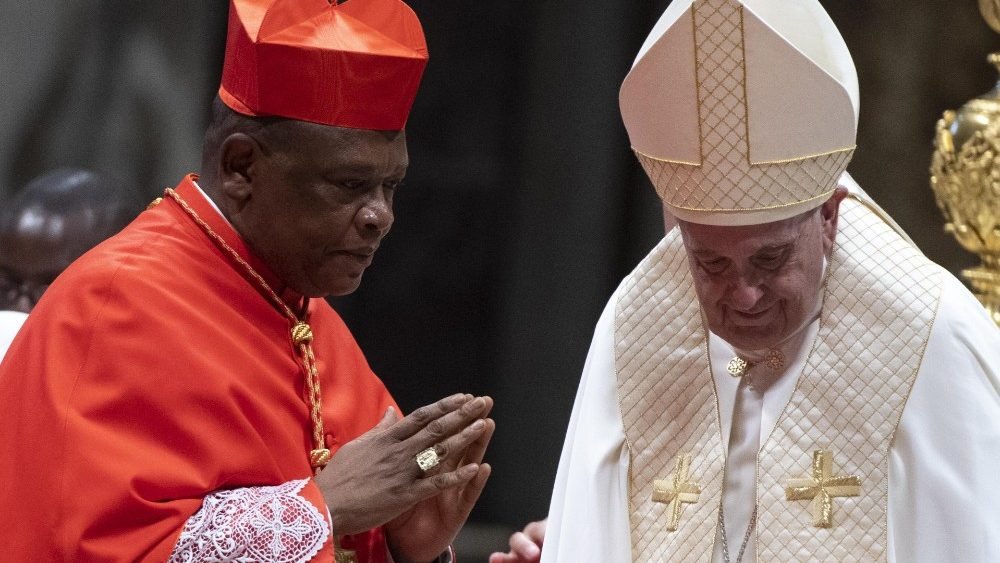Fiducia Supplicans’ Geography of Sin
The Catholic Thing, 05 February 2024
An ideological group that includes the Orthodox Churches and the Dutch, Hungarian, and Polish bishops, among others, is perhaps not as small as the Vatican would like to think.
In the forty-some years since the BBC launched the political satire Yes, Minister – said to have been Margaret Thatcher’s favorite show – its relevance has only grown. Anyone who watches Sir Humphrey describe the Church of England (“The Bishop’s Gambit”) may think he is watching a historical documentary, not a comedy. There are laughs aplenty, but there was – and is – a sting in it for Anglican leaders.
“It’s interesting, isn’t it, that nowadays politicians want to talk about moral issues, and bishops want to talk politics,” observes Sir Humphrey, cynically adding that “theology is a device for allowing agnostics to remain with the church.”
Jim Hacker, the cabinet minister (and later prime minister) who is Sir Humphrey’s ostensible political master, tries to be less cynical – at least until political forces overwhelm his weak will and confused conscience. In another episode (“The Moral Dimension”), Hacker protests overseas corruption, while Humphrey justifies it as simply how business is conducted abroad.
“Sin is not a branch of geography,” Hacker sternly replies, reproving Humphrey.
These days, for Catholics, sin is very much a branch of geography in 2024.
On 18 December last year, Cardinal Víctor Manuel Fernández made his “declaration” – with papal approval – encouraging blessings for “irregular and same-sex couples.” The fallout has been amply addressed in these pages and everywhere else.
Relatively few voices have openly welcomed the declaration. Most bishops have remained notably quiet, and some have been vocally opposed. The latter consider blessing such couples or unions to be “blessing sin,” which the Church cannot do. That was the position Pope Francis held when he addressed the matter in 2021.
Thus, a man who abandoned his wife to take up with his mistress can receive a blessing with her in Germany, but in Poland or the Netherlands they could not.
Some bits of geography have particular significance. Cardinal Mauro Gambetti, the pope’s vicar general for Vatican City, has announced that blessings will be available in St. Peter’s Basilica. These blessings are to be spontaneous and non-ritualized, so how they would be provided is difficult to imagine.
What happens if a couple visits the Vatican and asks a priest they encounter for a blessing? Perhaps they should check first whether he’s from Holland or Germany. If he’s French they may wish to enquire as to his diocese; the permanent council of the French bishops welcomed the irregular blessings, but nine bishops from the province of Rennes forbade them.
In any case, the couple knows better than visiting Africa for a blessing. The entire continental episcopate issued a thunderous non placet to the enterprise. Cardinal Fridolin Ambongo, president of the Symposium of Episcopal Conferences of Africa and Madagascar (SECAM) – and a member of the Council of Cardinals, the inner circle of advisors to Pope Francis – did not get the 2013 “Who am I to judge?” memo.
Fridolin Cardinal Ambongo Besungu, O.F.M. Cap. with Pope Francis in 2019 [Vatican Media]
“And if we bless a homosexual, it is also to say that ‘your sexual orientation is not in accordance with the will of God and we hope that the blessing can help you change because homosexuality is condemned in the Bible and by the magisterium of the Church’,” Cardinal Ambongo said about the African rejection, in language rarely heard from bishops in the United States or Canada. “We cannot be promoters of sexual deviation.”
Sin as a branch of geography was advanced in 2016 with Amoris Laetitia, on the much graver issue of worthy reception of Holy Communion. Then, the Holy Father framed his teaching indirectly, in an ambiguous footnote, not even mentioning Holy Communion. The Germans went one way, and the Poles across the border went another.
This time, Cardinal Fernández tried to do through the front door what Amoris Laetitia did through the back door. The Africans – but not only them – slammed the door in his face.
Fernández may not have learned the lessons of 2016 about the geography of sin. But the Africans did.
Continue reading at the The Catholic Thing.
